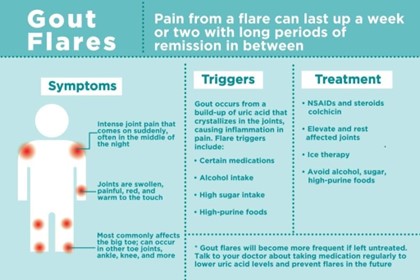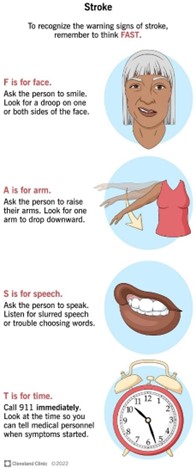A nurse is collecting data from a client who has an exacerbation of gout. Which of the following findings should the nurse expect? (Select all that apply.)
Tight skin
Edema
Tophi
Symmetrical joint pain
Erythema
Correct Answer : B,C,E
A nurse collecting data from a client who has an exacerbation of gout should expect to find edema, tophi, and erythema. Gout is a type of arthritis that occurs when urate crystals accumulate in the joints, causing inflammation and intense pain. Edema (swelling) is a common symptom of gout⁴. Tophi are deposits of urate crystals that can form under the skin in people with chronic gout³. Erythema (redness) is another common symptom of gout⁴.
a. Tight skin is not a common symptom of gout.
d. Symmetrical joint pain is not a common symptom of gout, as it usually affects only one joint at a time.

Nursing Test Bank
Naxlex Comprehensive Predictor Exams
Related Questions
Correct Answer is C
Explanation
The highest priority nursing intervention for a client who is unconscious following a stroke is to suction saliva from the client's mouth. This can help prevent aspiration and maintain a patent airway, which is essential for the client's survival.
Performing a passive range of motion on each extremity, recording the client's intake and output, and monitoring the client's electrolyte levels are also important nursing interventions for this client. However, these interventions are not as high of a priority as maintaining a patent airway.

Correct Answer is A
Explanation
If a client returns to the surgical unit from the PACU in skeletal traction and the weights rest against the foot of the bed, the nurse should take action to correct this problem with the traction setup. The weights should be hanging freely and not touching any part of the bed or floor. This ensures that the traction is providing the appropriate amount of force to the affected limb.
The other options listed are not problems with the traction setup. The ropes should be in the center of the wheel grooves, the weights should be equal on each side, and the ropes should attach securely to the pin.
Whether you are a student looking to ace your exams or a practicing nurse seeking to enhance your expertise , our nursing education contents will empower you with the confidence and competence to make a difference in the lives of patients and become a respected leader in the healthcare field.
Visit Naxlex, invest in your future and unlock endless possibilities with our unparalleled nursing education contents today
Report Wrong Answer on the Current Question
Do you disagree with the answer? If yes, what is your expected answer? Explain.
Kindly be descriptive with the issue you are facing.
